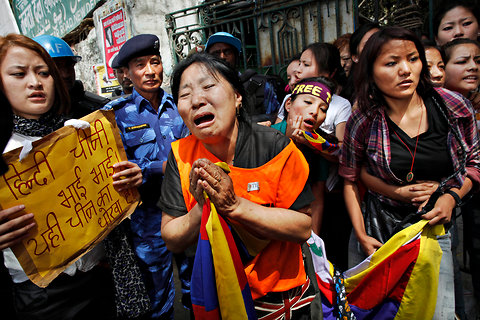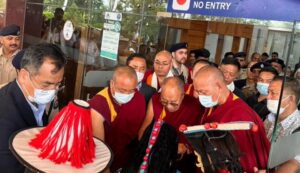Clampdown on Delhi Protests

Paramilitary officers have been active in much of the Tibetan neighbourhood, Tenzin Norsang, joint secretary of the Tibetan Youth Congress, was arrested and held in a local jail. After being contacted on his cell phone, Norsang said there was an additional 156 Tibetans being imprisoned including 23 women. These figures were later confirmed by a police official wishing to keep his anonymity, who said 151 people had been arrested by Tuesday, with further prisoners en route. Before communication was lost, Tenzin said: “Indian police are doing what we want. Either let us condemn Hu Jintao’s visit or detain us.”
On the Wednesday before President Hu arrived, Tibetan groups protested outside the Oeroi Hotel where he would residing, however their efforts were stopped by troops with activists reporting two girls and a boy were later detained.
For much of these Tibetans there is a sense of conflict. On one hand, they protest for their freedom, his holiness the Dalai Lama, their country; however the police who oppose them are simply following orders from their government following pressure from the Chinese authorities to avoid any high profile protests that have occurred in recent years.
Tenzin Dolkar, a grassroots co-ordinator for Students for a Free Tibet India, was in Delhi and involved during President Hu Jintao’s visit. For four days she continuity protested, evading police for much of it before being arrested on the final day. She says:
“The police were generally very good to us. Although I think they are just following orders, most of them known about our situation and sympathise with. However, I do wish there took a more gentle approach when we are protesting. Most of the Tibetans I know in prison have generally been treated well but sometimes they have been beaten up, especially when protesting directly outside the Chinese embassies.”
For exiled Tibetans residing in India, protesting is neither protected or a given right, hence many find themselves suppressed in their attempts. However their efforts is a clear sign that support for a free Tibet is rife across the world, and the Chinese Government can no longer hide behind the shroud of deceit it has long relied on.




